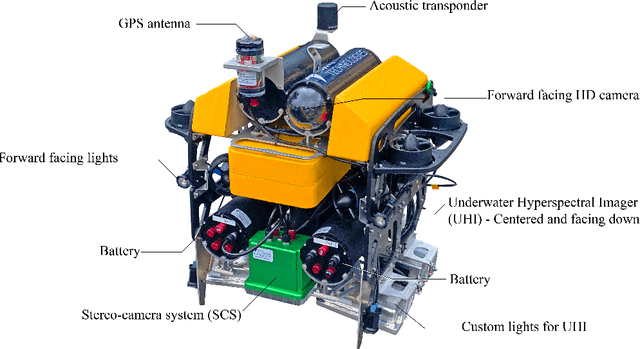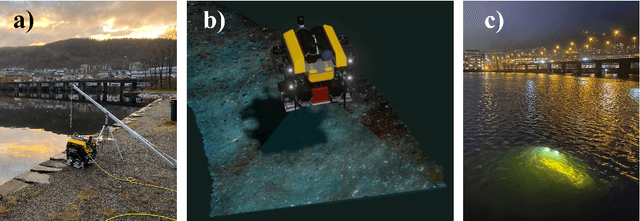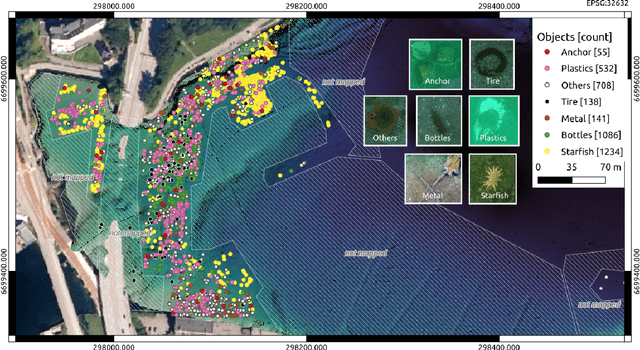Underwater autonomous mapping and characterization of marine debris in urban water bodies
Paper and Code
Aug 01, 2022



Marine debris originating from human activity has been accumulating in underwater environments such as oceans, lakes, and rivers for decades. The extent, type, and amount of waste is hard to assess as the exact mechanisms for spread are not understood, yielding unknown consequences for the marine environment and human health. Methods for detecting and mapping marine debris is therefore vital in order to gain insight into pollution dynamics, which in turn can be used to effectively plan and execute physical removal. Using an autonomous underwater vehicle (AUV), equipped with an underwater hyperspectral imager (UHI) and stereo-camera, marine debris was autonomously detected, mapped and quantified in the sheltered bay Store Lungegaardsvann in Bergen, Norway.
 Add to Chrome
Add to Chrome Add to Firefox
Add to Firefox Add to Edge
Add to Edge